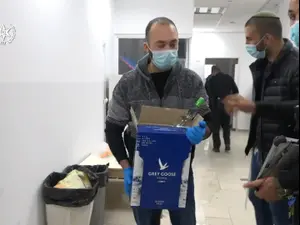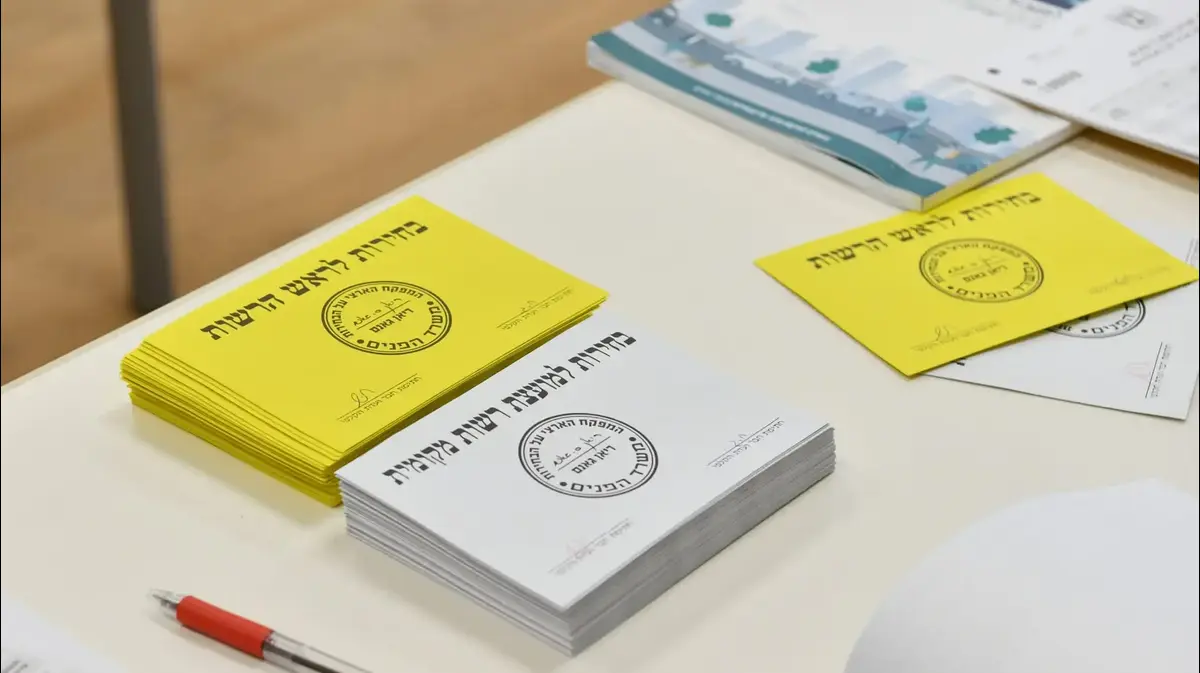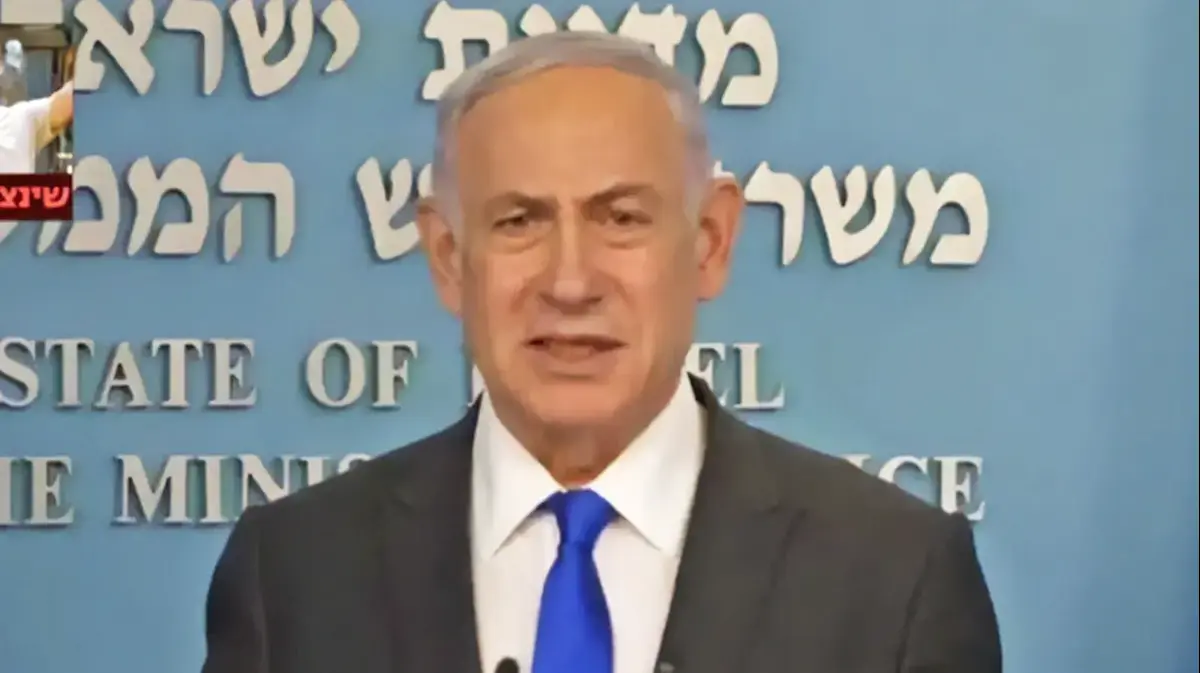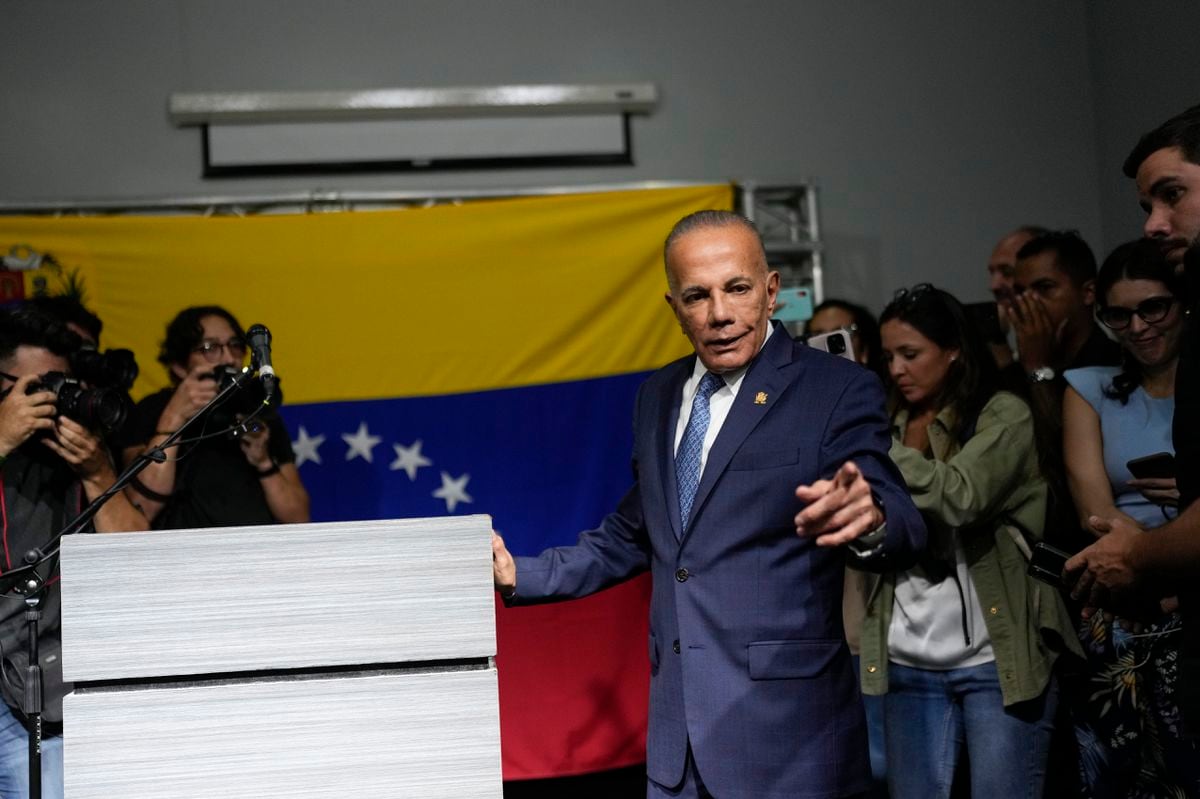news
News in Israel
Criminal news and law
The minority was trampled, and the disqualification hearings of the candidates in the election became a circus
Disqualification discussions in the Election Commission allow the majority representatives to prevent the minority from participating in the democratic game.
The High Court, which is supposed to balance this power, also does not benefit from its role in the equation. Also: the disturbing flash legislation around the handcuffs for those landing at Ben Gurion Airport
Tags
High Court
Abtissam Maraana
Central Election Commission
Daniel Dolev
Saturday, 27 February 2021, 19:08
Share on Facebook
Share on WhatsApp
Share on general
Share on general
Share on Twitter
Share on Email
0 comments
The suspicion of raping the girl in the Corona Hotel: Detention extended ...
First night of the night curfew: The police dispersed for forbidden reasons ...
The Knesset approved: Details of non-vaccinated citizens will be transferred ...
In response to gunfire in Iraq: US attacks militia targets ...
Netanyahu refers to the environmental disaster of coastal pollution ...
Yigal Alon in an interview in 1980 about the desire to be the head ...
Checkpoints around the country and fines for violators: The night curfew on the holiday ...
All Barry and Shokeda forest parking lots are full, occupied ...
Documentation: Police beat protesters in Umm al-Fahm ...
Riots during a mass demonstration in Umm al-Fahm;
4 arrested ...
The IDF's new helicopter: CH53K made by "Lockheed Martin" ...
In the video: The High Court discusses the disqualification of Abtisam Maraan from running in the election (Hillel Bitton Rosen, Channel 20, Yonatan Zindel Flash 90)
Nine Supreme Court justices have convened this week for what has unfortunately become a regular ritual in the past two years - a hearing on disqualifying candidates ahead of the Knesset elections.
This ceremony, not to mention a show, does no good to anyone involved.
Certainly not to the Knesset and the Supreme Court.
According to the law, a candidate or impressive candidate can be denied participation in an election only if one of their goals, actions or statements has one of the following: "Denial of the existence of the State of Israel as a Jewish and democratic state, incitement to racism or support of armed struggle against an enemy state or terrorist organization Israel".
The person responsible for implementing the law is the Central Election Commission, a body composed of representatives of the various factions according to their size in the current Knesset.
On the face of it, it sounds natural that such a substantive decision in the democratic process should be made directly by the representatives of the people.
But in practice, this gives the majority representatives in the Knesset the opportunity to prevent the minority from participating in the democratic game.
To ensure that the majority does not abuse this immense power, any disqualification of a candidate must be approved by the Supreme Court in an expanded composition, and even disqualification of lists can be appealed to the Supreme Court.
More on Walla!
NEWS
The star from Spain: a family paella
Avi Bitton
To the full article
The minority was hurt.
Discussion of the lists last week (Photo: Government Press Office)
Over the years, the factions' representatives on the committee learned that the real decision is being made in court anyway, and began to act accordingly.
They even gave up on appearances as if they were trying to enforce the law, and the disqualification hearings became a circus intended solely for the eyes of the media and voters.
Take, for example, the discussions that took place last week in the committee on the request to disqualify Abtisam Mara'ana-Menuhin, the seventh place on the work list.
The Jewish Power Party sought to disqualify it because of statements that allegedly deny the existence of Israel as a Jewish and democratic state, and others that allegedly support an armed struggle against Israel.
The judges will decide on Sunday.
From the top (Photo: Flash 90, Jonathan Zindel)
Surprisingly, there was not a single representative on the committee who thought that the evidence before them justified its disqualification on only one of the grounds.
Although these are two separate votes, anyone who thought that Maraana should be disqualified for one of the reasons, thought the same about the other.
Anyone who opposed the disqualification also objected on both grounds.
Equally miraculously, the vote was aligned exactly along party lines.
All Likud representatives supported the disqualification, representatives of Degel HaTorah and Agudat Yisrael abstained - as they almost always do for ideological reasons;
And all nine blue and white representatives and there is a future opposed.
After the vote on the rejection of Mara'ana, increased application of Jewish power to disqualify the entire joint list, and the REM split it. Representatives of the Likud, this election attractive to another point in the Arab sector, all were absent from the vote.
The committee plays a role invalidation requests usually reserved To the court: It hears evidence and is supposed to decide whether the candidate actually meets the criteria set by the law to justify disqualification. Just as the court hears evidence and decides whether a particular act was committed and whether it is an offense. Can not engage in such decisions.This
week, Maraana's disqualification reached the Supreme Court, and if there are no surprises on Sunday the judges will reverse the committee's decision and approve its deal. The public.
The fact that the law states that the decision needs the approval of the Supreme Court will probably not change much.
In the long run, these attacks have an impact on public trust, whether grounded or not.
The Central District Court in Lod is currently hearing an indictment against an employee of a company that provided IPS services intended for electronic restraint. According to the suspect, the same defendant instructed the detainees about a malfunction they had to report so that the company would send him to handle it. Then the original detainee can move around freely. All for money, of course.
This story is particularly relevant this week, when Health Minister Yuli Edelstein and Constitution Committee Chairman Yaakov approved a pilot of electronic restraint to be offered to returnees from abroad as a replacement for hotel isolation. The Ministry of Health announced that they will start working on Bezeq legislation as early as next week, which will make it possible to expand the pilot.
The handcuffs for landers at Ben Gurion Airport (Photo: official website, SuperCom)
The initiative drew much criticism for its invasion of privacy, but one of the points that received little attention was the fact that a private company would run the venture.
That is, the information about the location of unsuspecting citizens will pass to a civil society, which raises a number of questions regarding the preservation of sensitive information and exposure to it.
In the first wave of the Corona, Naftali Bennett and Ayelet Shaked suggested that the identification data collected by the GSS on Israeli citizens be transferred to the cyber company NSO, in order to improve the fight against the virus. A great outcry arose against the initiative, Its products have been used by governments around the world to track journalists and human rights activists. A
much weaker outcry has already been raised this week. This is evidence that Israel has taken another slippery slope on which the corona erases the right to privacy after GSS replacements. That will make it possible to transfer information about people who have not been vaccinated to local authorities.
It can be assumed that with the end of the corona crisis these steps, all of which are temporary, will disappear from our lives.
But in the next crisis, which may be less severe, they will already be waiting at the starting point.
Another disturbing point is the expedited legislative process in which the handcuffs are attached to the hands of citizens returning from abroad. A pilot that begins within four days of the decision on it, and primary legislation that is promoted during the pilot?
An old joke
For comparison, it is worth looking at the procedure for amending the law that will allow electronic handcuffs to be attached to men suspected of domestic violence against whom the court has already issued a restraining order.
The goal is to make sure through electronic restraint that those men do not violate the order.
According to the Knesset Research and Information Center, there are hundreds of such violations a year.
Preventing them is an important goal for all opinions, so important that this bill has been passed twice already.
In July 2017 it passed a preliminary reading, but after that got stuck in the Constitution Committee and did not go up for a first reading.
Three years later, in June 2020, it was re-raised by MK Keren Barak (Likud) in a preliminary reading, and it passed the plenum again, this time to the Labor and Welfare Committee.
The committee discussed the proposal in November, but it again failed to get even a vote in the first reading in the plenum.
One can recall the old joke about that smoker coming to his friend and asking him for advice on how to quit the obscene habit.
"There's nothing easier than quitting smoking," the friend replies decisively, "look at me, I do it once every two weeks."
If it was not sad, it would be funny.
And maybe there is another explanation for the procedure.
Here's a speculation from the Knesset's feverish mind: the goal of the expedited legislative process is to finish the legislation and expand the pilot before Passover. Thus, people coming from abroad will be able to opt for electronic handcuffs and be released for home isolation.
But the handcuffs only check that they are at home, and can not warn that they are not alone.
Say, hosting the extended family for Seder night.
Isharloff, the so-called.
Share on Facebook
Share on WhatsApp
Share on general
Share on general
Share on Twitter
Share on Email
0 comments












/cloudfront-eu-central-1.images.arcpublishing.com/prisa/KMEYMJKESBAZBE4MRBAM4TGHIQ.jpg)


